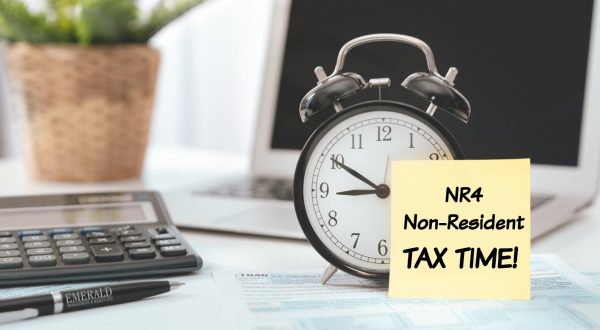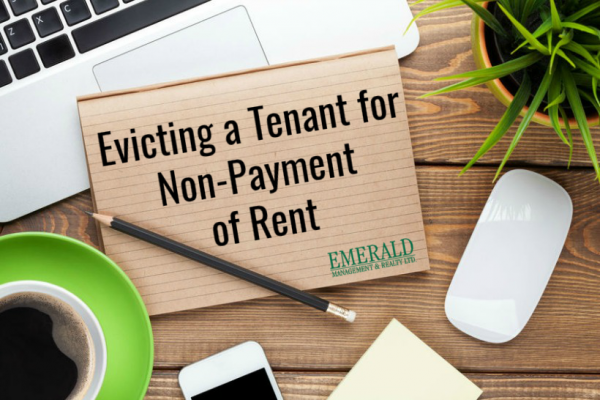
It’s no secret that when it comes to paying taxes in Canada, things can get complicated fast. It can be difficult enough for a Canadian citizen to navigate the taxes they owe each year, let alone for foreign non-residents. The worst part? If you’re a non-resident and don’t provide the Canada Revenue Association (“CRA”) with what it requires come tax season, you can incur heavy fines and penalties.
Fortunately, the property rental and management professionals at Emerald Management & Realty Ltd. have the necessary expertise to help non-residents of Canada assist with the withholding and remittances required for properties managed in Calgary and surrounding areas.
To that end, let’s take a look at what non-resident taxes are, what you need to know about them as a non-resident of Canada, and why you should consider purchasing investment property.
An Introduction to Non-Resident Taxes
Before we talk about non-resident taxes, let’s quickly define what non-residency status is. For all intents and purposes, you can consider yourself a non-resident for tax purposes if you aren’t a government-recognized Canadian citizen or live in another country during the tax year.
If you are certain that your residency status is that of a Canadian non-resident, then you owe non-resident taxes called Part XIII tax or Part I tax. In short, this means that you are responsible for filing these taxes on whatever income you make from business done in Canada. Depending on the kind of income that you receive, your tax obligations, like the type of tax you file, may vary.
It can be incredibly time-consuming to understand which types of income in Canada are subject to which non-resident tax. Investment property owners often opt to engage the services of a property management company or appoint a local agent to collect and submit withholding tax from their rental property.
We highly recommend that you consult the expertise of your tax specialist in collaboration with a qualified property management companies such as Emerald Management & Realty Ltd. to make sure you understand your tax obligations and which sources of your income are taxable. While we do not file your taxes for you, your accountant or tax specialist that prepares your annual Canadian tax returns may also be able to assist you assess additional concerns and potential benefits tied to your non-resident status.
Answering Common Questions About Non-Resident Taxes
There is a lot of information to digest about tax obligations that apply to Canadian non-residents, to say the least. We’ve compiled a short list of the most frequently asked questions we receive when it comes to understanding and paying non-resident taxes in Canada.
- Am I considered a Canadian non-resident? For tax purposes, you should consider yourself a non-resident in Canada if you live in a different country for the majority (more than 183 days) of the government-recognized tax year.
- What are the types of non-resident taxes? Tax obligations for Canadian non-residents are the Part XIII tax and Part I tax on income from business done in the country. This includes income earned from revenue properties such as investment rentals.
- Do I need to file an income tax return? Generally speaking, non-residents in Canada pay tax returns on Canadian income if they need to claim a refund or are obligated to pay a Part XIII or Part I tax.
- Is there a deadline for submitting my non-resident taxes? The tax return date in Canada is April 30 of the year after the tax year, or June 15 of the year after the tax year for non-residents with a spouse performing business in Canada. Your return must be filed by June 30th of the following year. As the Owner, you are responsible to make sure the proper return is filed and for any assessments by CRA.
- How much do I have to pay or withhold? In accordance with CRA’s guidelines as of May 2021. Once your property is rented, Emerald Management & Realty Ltd. as your agent, would withhold and remit 25% of the Owner’s gross rental income to CRA.
- How is a T4 different from a NR4 statement? A NR4 statement is similar to a T4, but it is a statement of rental income for a non-resident.
How do I protect myself as a non-resident or foreign resident?
- Consult with our team at Emerald Management & Realty Ltd. and your account and/or tax specialist to determine if non-resident taxation applies to you.
- Check and go direct to the source. Visit CRA’s website for more information and contact them with any questions or concerns.
- Take steps to collect the required documentation and review it with your accountant or tax specialist prior to submission
- Ensure that you complete the remittance of NR4 tax on time to avoid penalty or further complications
Benefits of Property Management
It is worth understanding the benefits of owning property if you’re considering purchasing real estate for yourself. At Emerald Management & Realty, we help our clients realize the biggest benefits and profit from our experience that comes with our property management services such as:
- Peace of mind for yourself and the management of your tenant
- Licensed property management brokerage that can support you with the preparation and remittance of NR4 filings to the CRA
- Timely rent collection
- Lower vacancy rates
- Fewer potential turnovers resulting from professional tenant screening
- Smaller chance of legal problems
- Property emergency support 24 hours a day, seven days a week
- Preventative maintenance programs to preserve and improve on the equity of your rental property investment
If you’re considering how property management services may be right for your real estate needs, then you’ve come to the right place. The professionals at Emerald Management & Realty make it simpler for non-residents to enhance their property investments and maximize profitability. For more information on how we can help and our cost for NR4 support, contact our team today!
Make your property work for you by getting in touch with our experienced, friendly team today on our website or by calling us at 403-237-8600




